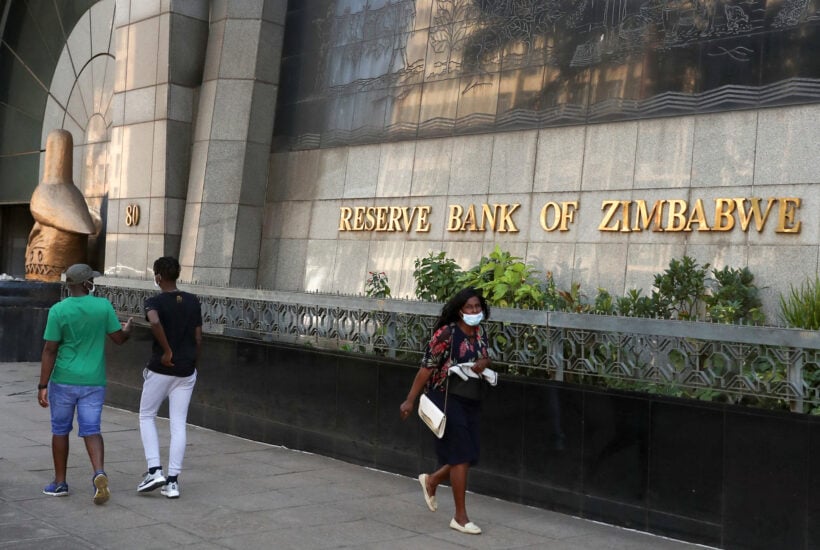
HARARE, April 26 (Reuters) – Zimbabwe is arresting black market forex dealers they accuse of distorting exchange rates as the country prepares for its new gold-backed currency to enter circulation next week.
Two weeks ago, black market traders would openly solicit customers at street corners but constant police raids since have driven the thriving alternative forex market underground.
Zimbabwe, which launched a new gold-backed currency called Zimbabwe Gold (ZiG) in early April, dumping the troubled Zimdollar, fears that a black market which thrives on charging premiums will weaken the new currency.
While the ZiG has enjoyed stability on the formal market since its introduction, trading at ZiG 13.3 to a dollar, black market traders are already charging a 65% premium to the dollar.
Keen to establish trust in the new currency to bring down high inflation and secure a new IMF programme by demonstrating sound economic management, the government has threatened brute force to shut down the street currency traders.
“We wouldn’t want you to end up being crippled after being attacked,” Vice President Constantino Chiwenga said in a message to black-market dealers at a political gathering on Tuesday.
Secretary for finance George Guvamatanga said Zimbabwe’s treasury classifies any illegal forex dealing as money laundering.
More than 70 black-market forex dealers arrested in the southern African country’s capital Harare last week have been refused bail.
“My colleague was taken in last week and that was the last we heard from him. I hear he was denied bail. It is no longer safe out here,” one dealer told Reuters.
“I don’t pick up unknown calls anymore, or entertain clients that I do not know. These police officers are coming here undercover and in plainclothes. If you entertain them, you will be gone in no time,” said another dealer.
However, economists questioned whether the police crackdown will be enough to restore confidence in the local currency.
“I think for a currency, its a matter of confidence. People need to be confident in that currency and also need sustained stability in order for them to accept it,” said independent economist Happiness Zengeni.
Zimbabwean authorities hope the new currency will help shore up an economy that has suffered severely from low commodity prices and the impact of the El Nino-induced drought.
The central bank will put new ZiG banknotes and coins into general circulation on April 30.
(Reporting by Nyasha Chingono; editing by Olivia Kumwenda-Mtambo and Mark Heinrich)

